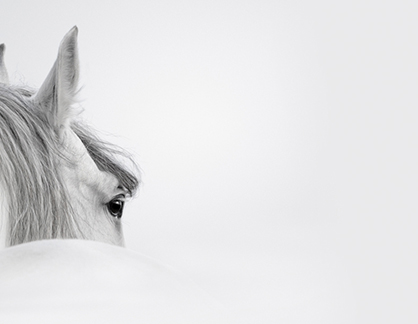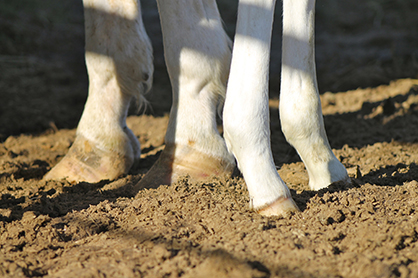
#1- Ensure your horse is receiving a sufficient amount and appropriate quality of forage, whether it is pasture or hay. Though alfalfa (lucerne) and other legume forages are not appropriate for all horses, some horsemen and horsewomen believe that the rich protein content of these forages helps add bloom to a horse’s coat.
Continue reading …Online Horse Behavior and Safety Course- July 23rd-Aug. 10th
June 21, 2018 Comments Off on Online Horse Behavior and Safety Course- July 23rd-Aug. 10th
For less than the cost of one riding lesson, students will spend three weeks learning new things they will find useful when thinking about why horses act the way they do. Over 95% of the past participants have said the course was enjoyable and informative and most say they will make changes regarding how they work around horses. Changes like being more aware of blind spots in horses, properly releasing a horse into a paddock and improving barn fire prevention.
Continue reading …State Veterinarians Urging Horse Owners to Vaccinate
June 19, 2018 Comments Off on State Veterinarians Urging Horse Owners to Vaccinate
“With all of the rain the region has experienced and with mosquito season now in full swing, it is important that horse owners are being proactive and vaccinating their equines against mosquito-borne diseases,” said Maryland State Veterinarian Michael Radebaugh.
Continue reading …Cutting Edge Research Into Gene Doping and Improving Integrity of Horse Racing
June 16, 2018 Comments Off on Cutting Edge Research Into Gene Doping and Improving Integrity of Horse Racing
Gene doping involves the transfer or modification of genes or genetically modified cells of healthy human athletes, as well as equine athletes, for non-therapeutic purpose to enhance athletic performance.
Continue reading …
The dreaded sand. Sand can be irritating to your horse’s intestinal lining, and cause colic. Be extra careful to not let your horse overgraze on pastures rich in sandy soil and avoid feeding hay or grain on the ground.
Continue reading …Kindred Bio Will Award 2 Scholarships to APHA Amateurs at World Show
June 13, 2018 Comments Off on Kindred Bio Will Award 2 Scholarships to APHA Amateurs at World Show
“I was absolutely thrilled to hear KindredBio would be sponsoring the Amateur scholarships again for 2018. It is such a unique opportunity for our young APHA exhibitors who are continuing their education as well as their horsemanship skills. Presenting the scholarship to Lindsey and Angie last year was exciting; KindredBio made the event extra special, and I can’t wait to see who will be receiving the scholarship this year, “she said.
Continue reading …Part 3 in Video Series- “Recognizing Facial Expressions of a Horse in Pain”
June 12, 2018 Comments Off on Part 3 in Video Series- “Recognizing Facial Expressions of a Horse in Pain”
“Muscle tension,” Dr. Berger says, “is a physiological response to internal (pain) and external threats (fear). Both behaviors evolved in the horse to protect its body.” A horse in pain can build an association between its pain and its potential source, be it a person, piece of tack or tool. It is essential to recognize and assuage the emotional response before an escalation in pain becomes an escalation in difficult behavior.
Continue reading …First “Evening With Vet Med” Lecture Will be “Farrier Services: Hoof Care Myths and Truths”
June 9, 2018 Comments Off on First “Evening With Vet Med” Lecture Will be “Farrier Services: Hoof Care Myths and Truths”
“Farrier Services: Hoof Care Myths and Truths”
Tuesday, June 26, 2018, 7-8 p.m.
Presented by UC Davis farrier Shane Westman
The event is free, but you must REGISTER

Hemp? Isn’t that marijuana?
No, it is not marijuana. They are both part of the Cannabis family. But they are different subspecies. Marijuana is selectively bred to contain high amounts of psychoactive THC. Hemp seeds, on the other hand, are very low in THC (less than 4 ppm). Another phytocannabinoid, known as cannabidiol (CBD) is gaining interest in the health industry. It does not have any intoxicating properties and is found in low quantities in hemp seeds (less than 0.4%).[iii]
Continue reading …Could You be Missing the Signs of Equine Ulcers?
June 5, 2018 Comments Off on Could You be Missing the Signs of Equine Ulcers?
Less-than-optimal performance, resistance to work and difficulty training are all common issues that may be associated with gastric ulcers1,2 which can develop in as few as five days.3 If you have noticed behaviors such as your horse pinning his ears while being groomed, or kicking out when the girth is tightened, equine stomach ulcers could be a possibility, and it may be time to contact your veterinarian.
Continue reading …







